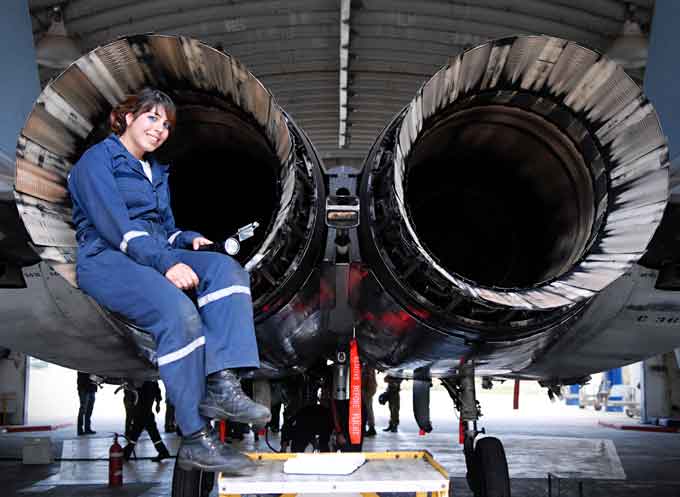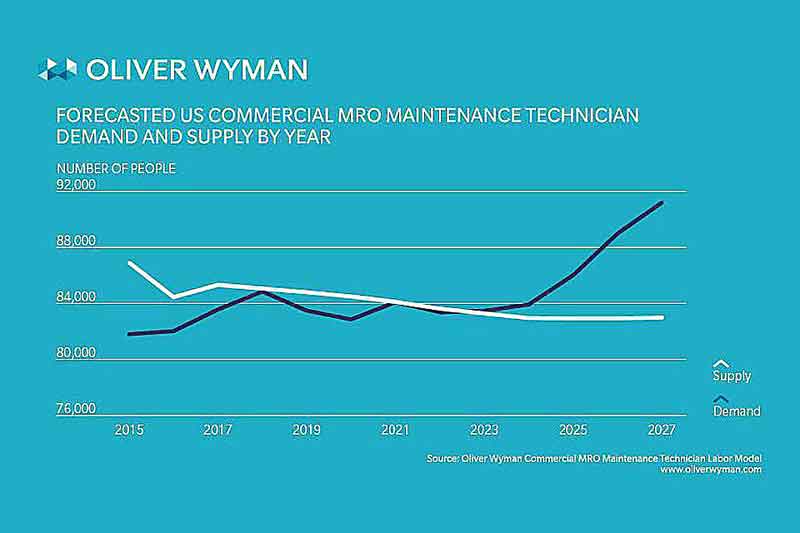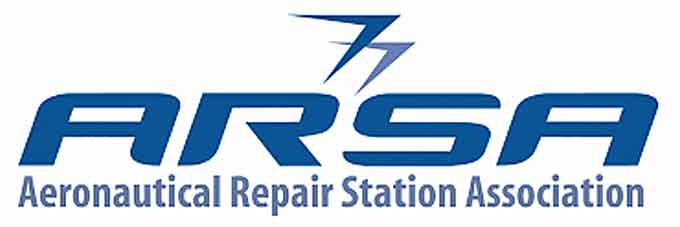
A bipartisan group of lawmakers introduced legislation on May 8th to address one of the most pressing challenges facing the U.S. aviation industry: the chronic technician shortage.
The bill sponsored by Reps. Sam Graves (R-Mo.), Dan Lipinski (D-Ill.), Markwayne Mullin (R-Okla.) and Brenda Lawrence (D-Mich.) is the House companion to Senate legislation introduced in March.
It creates a new program administered by the Federal Aviation Administration (FAA) to provide grants of up to $500,000 to support aviation maintenance workforce development activities.
The legislation incentivizes local collaboration by requiring that grant applications be jointly submitted by a business or labor organization, school and governmental entity.
Analysis by Boeing suggests that 118,000 new technicians will be needed in North America over the next two decades.
(See a brief overview of the aviation maintenance industry. Meet the men and women who keep the world safely in flight. Courtesy of ARSA and YouTube. Posted on Mar 13, 2015)
The consulting firm Oliver Wyman has forecast that demand for aviation maintenance technicians will outstrip supply by 2022.
The results of the Aeronautical Repair Station’s Association’s (ARSA) 2018 member survey further underscore the need for the legislation:
-
More than 80 percent of respondents reported difficulty finding qualified technicians and more than half of responding companies have unfilled positions.
As a result, companies say they are taking longer to complete work for customers, choosing not to add new technical capabilities and that in some cases turning down new business.

ARSA estimates its members will forego as much $642.5 million in revenue this year if the projected 2,500 vacant positions at member companies remain unfilled.
The aviation workforce legislation has broad support from business and labor.
A May 8 letter coordinated by ARSA in support of the House bill was signed by 19 other leading organizations, which includes:
- The Aerospace Industries Association
- The Aerospace Maintenance Council
- The Aircraft Electronics Association
- The Aircraft Mechanics Fraternal Association
- The Aircraft Owners and Pilots Association
- Airlines for America
- The Aviation Suppliers Association
- The Aviation Technician Education Council
- The Cargo Airline Association
- The General Aviation Manufacturers Association
- Helicopter Association International
- The Modification and Replacement Parts Association
- The National Air Carrier Association
- The National Air Transportation Association
- The National Association of State Aviation Officials
- The National Business Aviation Association
- The Professional Aviation Maintenance Association,
- The Regional Air Cargo Carriers Association, and
- The Regional Airline Association
(Learn More. Hear from Technical Operations employees explain the excitement of working for the FAA and why they love their jobs. Courtesy of Federal Aviation Administration and YouTube. Posted on Jul 18, 2017)
The National League of Cities has also voiced its support for the proposal and is a member of the ARSA-led coalition.

“The skills gap in the aviation maintenance industry is reaching crisis proportions,” ARSA Executive Vice President Christian Klein said.
“It threatens to undermine both the efficiency of our aviation system and the ability of U.S. aerospace companies to seize opportunities in the growing global marketplace.”
“We sincerely appreciate Representatives Graves, Lipinski, Mullin and Lawrence taking the lead on this important issue and look forward to working with them and our industry allies to enact their bill into law.”
(Today’s manufacturing doesn’t happen in the dingy or dark shop floors seen in Hollywood movies. American factories are among the most high-tech, innovative places on Earth — staffed by engineers and technicians, and even computer programmers who are busy writing the complex code that run technologically advanced machines. Hear from Boeing engineers about the exciting career paths available in aerospace manufacturing. Courtesy of Boeing and YouTube)


















Comments are closed.